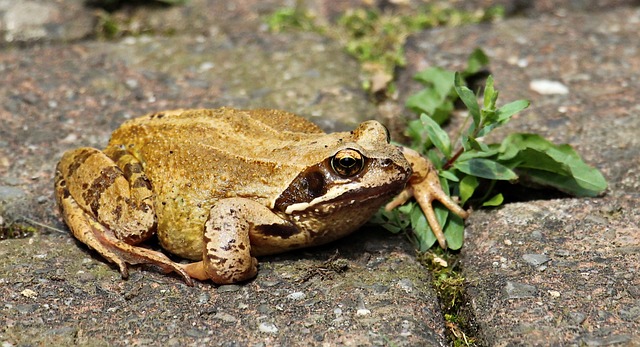THCA, a non-psychoactive cannabinoid and precursor to THC, has been legally recognized in its raw form in Minnesota under specific conditions set by the state's hemp regulations. According to the Controlled Substances Act, THCA-rich hemp flowers containing up to 0.3% delta-9 THC on a dry weight basis are legal in Minnesota, aligning with the 2018 Farm Bill. This legal distinction allows for various THCA products, including smokable flowers, edibles, and topicals, to be sold within a regulated environment. Research into THCA's potential health benefits, such as anti-inflammatory, neuroprotective, and analgesic properties, is ongoing. Minnesota's unique legislative framework regarding THCA has paved the way for cultivators to focus on growing high-THCA strains that are suitable to the state's climate and adhere to its environmental and regulatory standards, ensuring a legal and therapeutic market for this compound within the state.
Explore the intricate world of THCA flower, a non-psychoactive precursor to THC found within the cannabis plant. This article serves as a thorough guide for both newcomers and seasoned enthusiasts, particularly in the context of Minnesota’s evolving legal landscape regarding THCA. From the origins of THCA in the cannabis evolution to its legal status in Minnesota, we delve into the nuances that distinguish it from its psychoactive counterpart, THC. Aspiring cultivators will find valuable tips for growing THCA-rich flowers, while consumers can learn about preserving potency and understanding dosage. Additionally, we uncover the benefits of consuming THCA flower, explore its role in Minnesota’s medical and recreational markets, and offer insights into terpene synergy, legal compliance, and future research implications. Join us as we navigate this burgeoning field within Minnesota’s cannabis industry.
- Understanding THCA Flower: A Comprehensive Guide
- THCA Legal Status in Minnesota: What You Need to Know
- The Origins and Evolution of THCA in the Cannabis Plant
- THCA vs. THC: Key Differences and Effects
- Cultivating THCA-Rich Flowers: Tips for Minnesota Growers
Understanding THCA Flower: A Comprehensive Guide
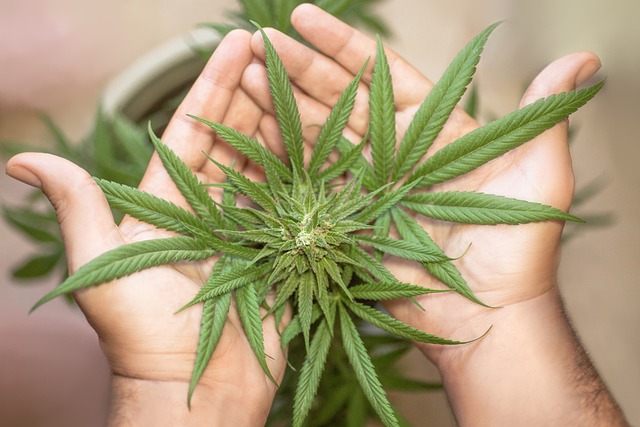
Cannabinoid enthusiasts and researchers have long been intrigued by THCA, or tetrahydrocannabinolic acid, a natural compound found in the cannabis plant. Unlike its well-known counterpart THC, THCA is non-psychoactive and presents unique therapeutic potential. As of the latest regulations, THCA flowers are recognized as legal in Minnesota, provided they contain less than 0.3% delta-9-THC on a dry weight basis, aligning with the 2018 Farm Bill guidelines. This legal distinction has opened avenues for consumers and patients to explore the potential benefits of THCA without the psychoactive effects typically associated with cannabis.
The THCA molecule is found in raw or fresh cannabis flowers and undergoes decarboxylation—a process involving heat—to transform into THC. This transformation alters its properties, which is why understanding THCA in its original form is crucial for those looking to harness its benefits. In Minnesota, where the legal landscape is clear, enthusiasts can experiment with THCA flowers in various forms, including smokable buds, edibles, and topicals. Studies have suggested that THCA may offer anti-inflammatory, neuroprotective, and analgesic properties, making it a subject of interest for those seeking alternative wellness solutions. As such, the cultivation, possession, and use of THCA flowers are regulated, ensuring consumers have access to products that meet safety and legality standards.
THCA Legal Status in Minnesota: What You Need to Know

In the realm of cannabis legislation, the legal status of THCA, or tetrahydrocannabinolic acid, a non-psychoactive precursor to THC found in raw cannabis plants, has been a subject of interest and confusion. As of the knowledge cutoff date, Minnesota’s approach to THCA aligns with its broader cannabis regulations. The Minnesota Controlled Substances Act categorizes THCA separately from its psychoactive form, THC. According to state law, raw cannabis flowers containing THCA are legal, provided they contain no more than 0.3% delta-9 tetrahydrocannabinol (THC) on a dry weight basis. This distinction is crucial for consumers and producers alike, as it allows for the use of THCA-rich hemp products within the state’s guidelines. However, once this THCA is heated or decarboxylated—a process that converts THCA into THC—it falls under Minnesota’s recreational cannabis regulations and is subject to the same legal considerations as other forms of THC. It’s important for users to understand the distinctions between THCA and THC, as well as the specific legal limits set forth by state law to ensure compliance and avoid inadvertent violations.
The Origins and Evolution of THCA in the Cannabis Plant
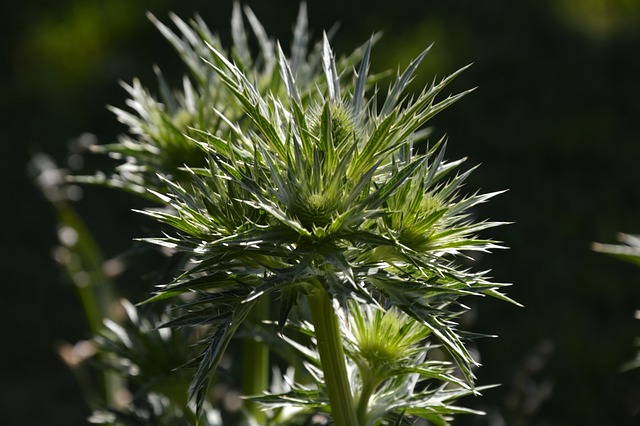
The origins of THCA, or tetrahydrocannabinolic acid, trace back to the ancient cannabis plants from which modern varieties have evolved. These early cannabis strains were utilized for various purposes in historical cultures, most notably in traditional Chinese and Indian medicine. Over time, through selective breeding and environmental adaptation, the cannabis plant’s THCA content has been influenced, leading to the diverse range of cannabinoids found in today’s cultivars. The evolution of THCA in the cannabis plant is a testament to natural selection and human intervention. In the context of legality, it’s relevant to note that THCA itself is not explicitly addressed in legal frameworks; however, its precursor, raw cannabis, including flowers rich in THCA, is legal in Minnesota under state law for recreational use, provided the THC concentration does not exceed 0.3% on a dry weight basis, aligning with the 2018 Farm Bill federal guidelines. This legal distinction allows for the cultivation and processing of cannabis flowers containing THCA for various uses, including wellness products and horticultural research. As such, understanding the origins and evolution of THCA within the cannabis plant is particularly pertinent in regions like Minnesota, where its presence is regulated yet permitted.
THCA vs. THC: Key Differences and Effects
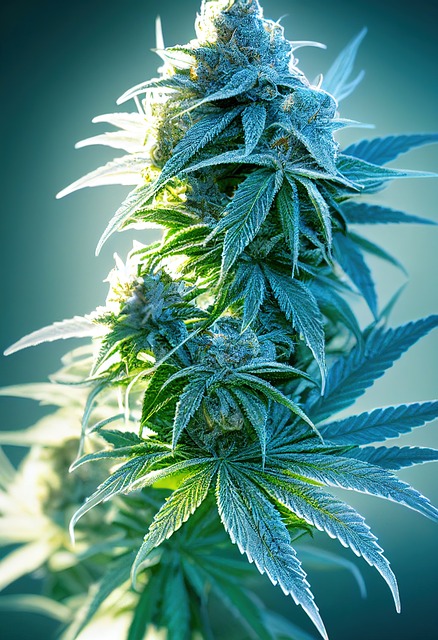
Cannabis enthusiasts and researchers are increasingly intrigued by the differences between THCA (tetrahydrocannabinolic acid) and its decarboxylated form, THC (tetrahydrocannabinol). Both compounds are prominent cannabinoids found in the Cannabis sativa plant, with distinct effects and legal statuses. In its natural state, THCA is the raw precursor to THC, which is formed when THCA undergoes a decarboxylation process typically through heating or curing. This process transforms THCA into THC, altering the psychoactive properties and effects experienced by users.
Legally, the landscape regarding THCA and THC varies across jurisdictions, with Minnesota presenting its own framework. In Minnesota, THCA is legal in various forms, provided it complies with state regulations governing hemp-derived products. This includes smokable hemp, which may contain THCA, as long as it meets the state’s THC concentration limits, distinguishing it from other states with more restrictive laws. The effects of THCA are often reported to be less psychoactive than THC, offering potential therapeutic benefits such as pain relief and anti-inflammatory properties without the strong high associated with THC. Users may experience a clear-headed focus or a relaxing effect, depending on the dosage and strain. Conversely, once decarboxylated into THC, the psychoactive effects are more pronounced, leading to altered perception, euphoria, and potential therapeutic benefits for conditions like PTSD, anxiety, and nausea. Understanding the nuances between THCA and THC is crucial for consumers and regulators alike, especially in states like Minnesota where the legal status of these compounds is defined by specific regulations.
Cultivating THCA-Rich Flowers: Tips for Minnesota Growers
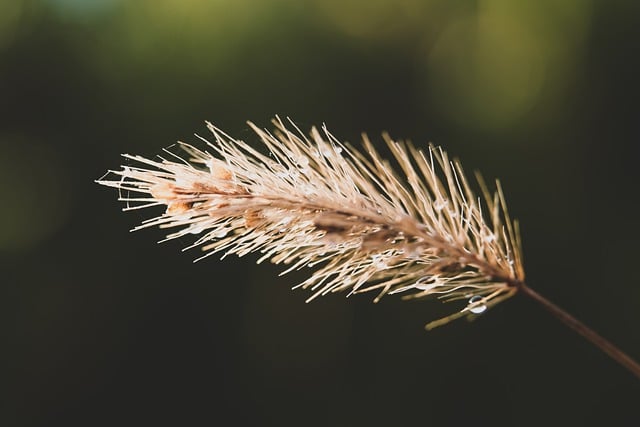
Cultivating THCA-rich flowers in Minnesota requires careful attention to both state regulations and optimal growing conditions. With the legal status of THCA clarified under Minnesota’s hemp laws, growers can focus on cultivation techniques that maximize THCA content. THCA, or tetrahydrocannabinolic acid, is a non-psychoactive cannabinoid found in high concentrations in young cannabis plants and prior to decaying into THC under heat and light. To ensure a bountiful harvest of THCA-rich flowers, Minnesota growers should select appropriate strains known for their THCA production and adhere to the following cultivation tips.
Choosing the right strain is crucial; opt for cultivars that naturally express high levels of THCA. These strains will thrive in Minnesota’s climate, which can range from cool springs to hot, humid summers. Ensure that your growing space receives ample sunlight, as THCA synthesis is light-dependent. Avoid exposing your plants to excessive heat and direct sunlight during the critical flowering stage, as this can accelerate the degradation of THCA into THC. Maintain optimal temperatures and humidity levels, especially in the vegetative and flowering stages, to preserve THCA potency. Additionally, employ organic pest control methods to prevent contamination that could compromise your crop’s quality. By adhering to these cultivation practices and staying informed about Minnesota’s agricultural guidelines, you can successfully grow and harvest THCA-rich flowers within the legal framework established by the state.
navigating the nuances of THCA, particularly as it pertains to legal cultivation and consumption in Minnesota, is a complex yet rewarding endeavor for enthusiasts and growers alike. This comprehensive guide has demystified the origins and evolution of THCA within the cannabis plant, highlighted its distinct properties compared to THC, and provided actionable tips for those looking to cultivate their own THCA-rich flowers in Minnesota’s favorable growing conditions. As THCA continues to carve out its place in the legal landscape, with clear guidelines now established in the state, savvy consumers and cultivators can confidently explore the potential of this cannabinoid. Remember to stay informed on the evolving regulations surrounding THCA to ensure compliance and maximize the benefits of these intriguing flower tips.
